
Workshop Organizers
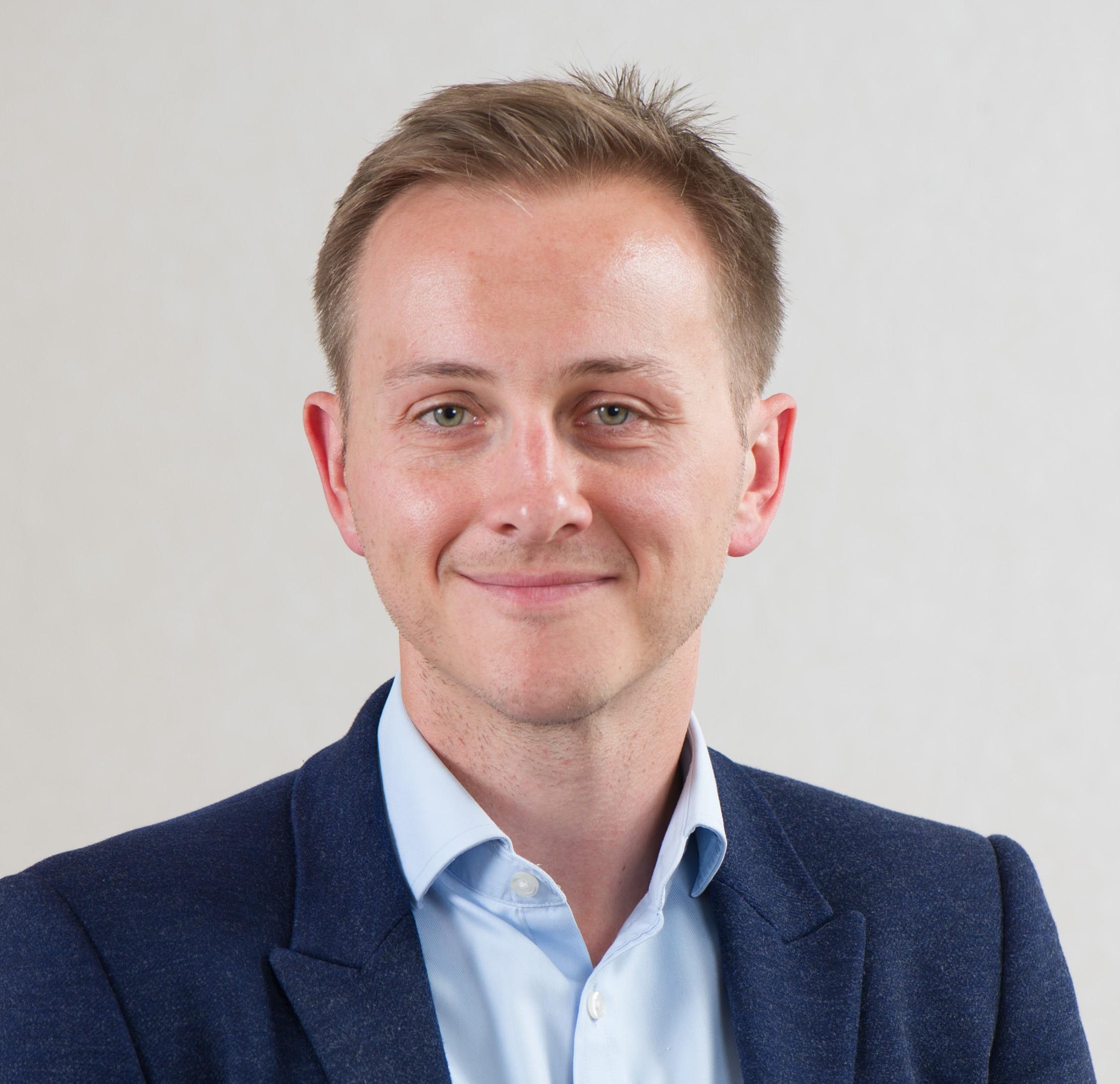
Adam Celiz, Imperial College London
Adam Celiz is a Senior Lecturer (Associate Professor) in the Depart of Bioengineering at Imperial College London. Previously, Adam graduated with a first class bachelor's degree from the University of Brighton in Pharmaceutical and Chemical Sciences (2006). He then gained a PhD in Chemistry from the University of Cambridge in the Melville Laboratory for Polymer Synthesis (2010). Celiz was a Postdoctoral Research Fellow at the University of Nottingham (2011-2014) and a Marie Skłodowska-Curie Research Fellow at the Wyss Institute for Biologically Inspired Engineering at Harvard University. He has received Early Career Researcher Awards from the American Vacuum Society's Biomaterials Interfaces Division (2016) and the Larry Hench Young Investigators Prize by the UK Society for Biomaterials (2017). His research focusses on developing biomaterials for tissue engineering and the discovery of new biomaterials via high-throughout screening methodologies. He is a recipient of a UKRI Future Leaders Fellowship.
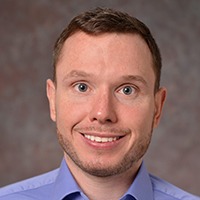
Adam Gormley, Rutgers University
Adam Gormley is an Associate Professor of Biomedical Engineering at Rutgers University, Executive Editor of Advanced Drug Delivery Reviews, and co-founder of Plexymer, Inc. Prior to Rutgers, Gormley was a Marie Skłodowska-Curie Research Fellow at the Karolinska Institutet and a Whitaker International Scholar at Imperial College London in the laboratory of Professor Molly Stevens. He obtained his PhD in Bioengineering from the University of Utah in the laboratory of Professor Hamid Ghandehari, and a BS in Mechanical Engineering from Lehigh University. In January 2017, he started the Gormley Lab which seeks to develop bioactive nanobiomaterials using robotics and artificial intelligence. Gormley is currently the PI of an NIH R35 MIRA Award, an NSF CBET Award, and an NSF Designing Materials to Revolutionize and Engineer our Future (DMREF) Award. He is the recipient of the A. Walter Tyson Assistant Professorship, the Young Innovator Award by Cellular and Molecular Bioengineering, and the Presidential Fellowship for Teaching Excellence.
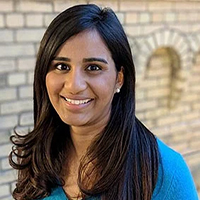
Marian Hettiaratchi, University of Oregon
Marian Hettiaratchi is an assistant professor at the Knight Campus for Accelerating Scientific Impact at the University of Oregon. She received a B.Sc. in chemical engineering from the University of Calgary and Ph.D. in biomedical engineering from the Georgia Institute of Technology and Emory University prior to conducting research at the University of Toronto as a Natural Sciences and Engineering Research Council (NSERC) post-doctoral fellow. Hettiaratchi’s laboratory develops biomaterials for tunable protein delivery by combining chemical engineering, transport modeling, polymer chemistry, and molecular biology. She is the recipient of the J.R. Neff Research Award from MTF Biologics, Early Career Outstanding Research Award from the University of Oregon, and Young Investigator Award from the Tissue Engineering Regenerative Medicine International Society – Americas Chapter (TERMIS-AM). The Hettiaratchi Lab's work is currently supported by an NIH R21 Trailblazer Award and R35 Maximizing Investigators’ Research Award, an NSF CAREER Award, and a Department of Defense Discovery Award.
Speakers
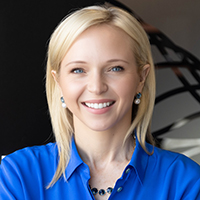
Christine Allen, University of Toronto
Christine Allen is a full professor at the University of Toronto (U of T) and an internationally recognized leader with more than 170 publications in drug formulation and development. She is a member of the Scientific Leadership Team of the Acceleration Consortium, a strategic initiative at the University of Toronto awarded $200M in funding from the Canada First Research Excellence Fund. She has received numerous awards, and is a distinguished fellow of prestigious societies including the American Institute for Medical and Biological Engineering, and the Canadian Academy of Health Sciences. Allen is committed to the translation and commercialization of her research. She is a co-founder and CEO of Intrepid Labs Inc., a company that is accelerating pharmaceutical drug development through integration of AI, automation and advanced computing. She is also a co-founder and board member at Nanovista Inc. Her lab at U of T is deeply engaged in industry partnerships, playing a key role in advancing drugs from early-stage research to clinical trials. Her leadership has been pivotal in several scientific societies, notably as President of the Controlled Release Society and the Canadian Society for Pharmaceutical Sciences. In academia, her roles have included the inaugural Associate Vice-President and Vice Provost Strategic Initiatives and Interim Dean of the Leslie Dan Faculty of Pharmacy.
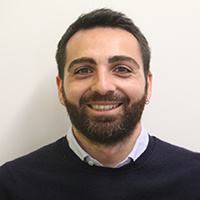
Carmelo De Maria, University of Pisa
Carmelo De Maria is an Associate Professor in Bioengineering at the Dept. of Information Engineering of the University of Pisa (Italy) and carries out his research in the Biofabrication Laboratory of the Center “E. Piaggio” of the same Institution. He is the author of several peer-reviewed papers, and he is involved in research projects, funded by public and private entities, focused on the AI-enhanced 3D/4D printing of biomaterials and biological materials for the development of advanced therapies and innovative medical devices. Finally, De Maria is active in international cooperation to increase the access to safe and sustainable medical technologies in low-resource settings.
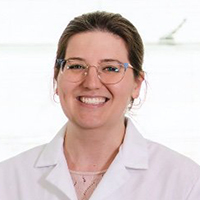
Kaitlin Fogg, Oregon State University
Kaitlin Fogg is an Assistant Professor in Chemical, Biological, and Environmental Engineering at Oregon State University. She earned her Ph.D. in Biomedical Engineering at the University of California, Davis in 2016, carrying out her thesis work focused on tissue engineering with Dr. Kent Leach. She then went on to complete a postdoctoral fellowship in cancer systems biology with Dr. Pamela Kreeger at the University of Wisconsin-Madison, where she used in vitro models of disease and statistical modeling techniques to investigate the interactions of the immune system and ovarian cancer. She is the recipient of a pre-doctoral fellowship from the American Heart Association, a Scientific Scholar award from the Rivkin Center for Ovarian Cancer Research, and was named a Shooting Star at the 2018 Cellular and Molecular Bioengineering Conference. Her current research program is the recipient of an NIGMS R35 and is dedicated to advancing women's health by developing innovative 3D models of gynecological tissues to improve treatments and outcomes for conditions such as cervical cancer, endometrial cancer, and endometriosis.
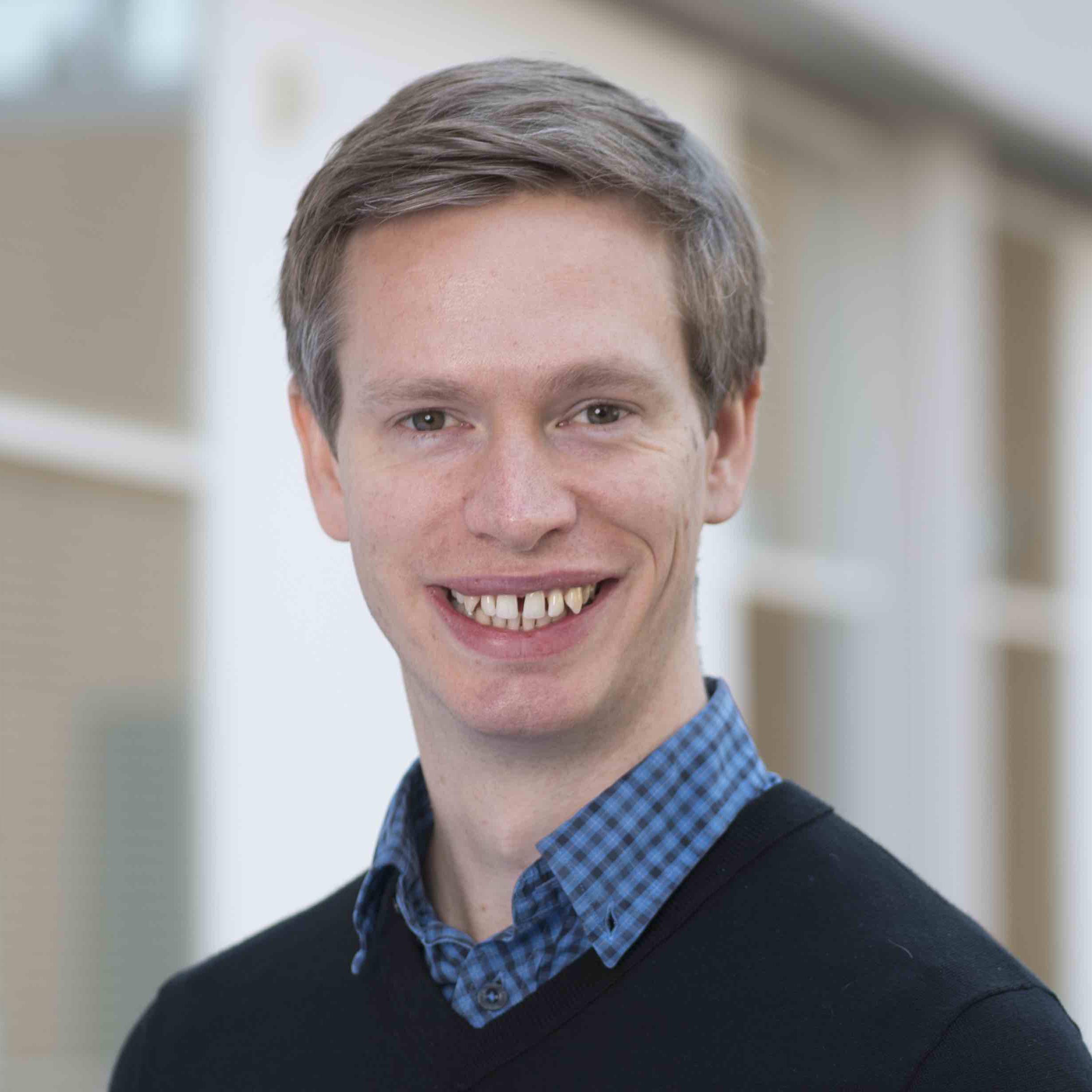
Andrew Hook, The University of Nottingham
Andrew's research seeks to develop and understand biomaterials to positively impact the healthcare sector. He has particularly focused on high throughput screening methodologies for the discovery of novel biomaterials and has developed data analysis processes to enable the exploration of complex datasets generated. He has recently become interested in the biological roles of polysaccharides such as glycosaminoglycans (GAGs), which will be the focus of his presentation. He is currently Associate Professor within the Advanced Materials and Technologies Division of the School of Pharmacy, University of Nottingham.
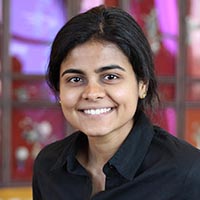
Ramya Kumar, Colorado School of Mines
Ramya obtained her B.E. (Hons.) in chemical engineering from BITS Pilani, India, and her PhD in chemical engineering at the University of Michigan, Ann Arbor. At Michigan, she received a Rackham Predoctoral fellowship, the Procter & Gamble Team Innovation award, and the Richard & Eleanor Towner Prize for creative and innovative teaching. Ramya is also an ACS PMSE Future Faculty awardee. Ramya completed her postdoctoral training at the University of Minnesota, Twin Cities. In January 2022, Ramya began her independent career as an Assistant Professor in the Department of Chemical Engineering at the Colorado School of Mines. Her lab applies controlled radical polymerization, surface-initiated polymerization, and statistical modeling to engineer polymeric nanocarriers for nucleic acid delivery and polymer coatings that direct and interrogate cell behavior. In August 2023, she was awarded an NIH R21 to develop polymer coatings for mesenchymal stem cell engineering. She has authored 17 publications (in journals such as ACS Nano, JACS Au, Macromolecules, ACS AMI, ACS Macro Letters) and 3 patents. She is a member of the American Chemical Society, AICHE, and the Society for Biomaterials. Outside work, Ramya enjoys long-distance running, writing for Substack, baking naturally fermented bread, and reading literary fiction.
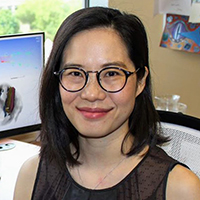
Nicole Li-Jessen, McGill University
Nicole Li-Jessen is a speech-language pathologist and a computer biologist by training. She obtained her clinical degree at the University of Hong Kong with extensive clinical experience in voice and swallowing disorders. She then pursued her PhD training in computational biology at the University of Pittsburgh and post-doctoral training in tissue engineering at the University of Wisconsin-Madison in the United States. She is Canada Research Chair in personalized medicine of upper airway health and diseases. Li-Jessen's Voice and Upper Airway Research Laboratory focuses on advancing personalized medicine in voice and upper airway disorders through the development of high-performance computing, wearable devices, non-invasive diagnostics and biomaterials for tissue regeneration. In particular, her team integrates in vitro, in vivo and in silico (computational) approaches to study vocal fold biology and wound healing. The ultimate goal is to guide surgeons and speech pathologists in the best methods to repair voices that have been lost. Her work is funded by Canadian Institutes of Health Research, Natural Sciences and Engineering Research Council of Canada and National Institutes of Health in the United States. To highlight, the two most recent grant awards, which involve international collaborators from the United Kingdom (Prof. Adam Celiz) and Germany, will drive the movement of incorporating AI in regenerative biomaterial design.
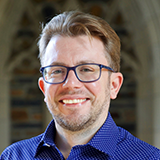
Daniel Reker, Duke University
Daniel Reker is a tenure-track Assistant Professor in the Department of Biomedical Engineering at Duke University and a Duke Science and Technology Fellow. He holds a B.Sc. with honors in Computer Science and a M.Sc. with honors in Computational Biology and Bioinformatics. He received his PhD from the Institute of Pharmaceutical Sciences at ETH Zurich and conducted his postdoctoral work in drug delivery as a SNF Postdoctoral Fellow with Bob Langer and Giovanni Traverso at MIT. Daniel has been named Forbes 30 under 30 in Science and Healthcare and has recently been recognized both as a National Institute of Biomedical Imaging and Bioengineering “Trailblazer” and as a National Institute of General Medical Sciences “Outstanding Investigator”. At Duke, he has built an integrated experimental and computational laboratory to conduct active machine learning campaigns with applications in drug discovery and drug delivery.
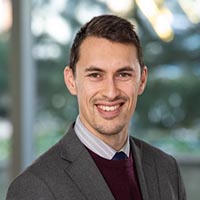
Michael Webb, Princeton University
Michael Webb is an Assistant Professor in the Chemical and Biological Engineering department at Princeton University. He is also affiliated faculty with Andlinger Center for Energy and the Environment, Center for Statistics and Machine Learning, Princeton Institute for Computational Science and Engineering, and the Princeton Materials Institute. Prior to joining Princeton, he obtained his B.S. from UC Berkeley in 2011 and his PhD from Caltech in 2016, both in Chemical Engineering. He then performed postdoctoral study at the University of Chicago and Argonne National Laboratory between 2016-2019. His current research emphasizes computational approaches and theory for understanding and designing materials, primarily polymer-based, for diverse applications. Specific interests relate to characterizing interfacial phenomena and physics in heterogeneous environments, simulating and controlling the behavior of stimuli-responsive systems, and formulating data-efficient strategies for machine learning of polymer properties. He is a recipient of the NSF CAREER award, a Howard B. Wentz Junior Faculty award at Princeton University, a Doctoral New Investigator award from the ACS Petroleum Research Foundation. He has also been featured as an `Emerging Investigator’ in the journal Molecular Systems, Design, & Engineering and as a `Rising Star’ in ACS Polymers Au.

David Winkler, Monash Institute for Pharmaceutical Sciences
David Winkler has an unusually broad formal training in chemistry, physics, chemical engineering, and radioastronomy. He is a Professor of Biochemistry & Chemistry at La Trobe Institute for Molecular Science at La Trobe University, an adjunct Professor of Medicinal Chemistry at the Monash Institute for Pharmaceutical Sciences, and a visiting Professor in Pharmacy at the University of Nottingham. He previously spent over 30 years at CSIRO applying computational chemistry, AI, and machine learning methods to the design of drugs, agrochemicals, nanomaterials, and biomaterials. He is ranked 136th out of 100,000 medicinal chemists (Stanford 2023). He has authored over 250 refereed journal articles and book chapters (6 that are ISI Highly Cited), has an H index of 62 (GS), and is an inventor on 25 filed patents. He has provided key IP for three biotech startup companies. His awards include the CSIRO Medal for Business Excellence, RACI’s Adrien Albert award for medicinal chemistry and a Distinguished Fellowship, the ACS Herman Skolnik award for excellence in cheminformatics, a Royal Academy of Engineering (UK) Distinguished Fellowship (bioengineering) and the AMMA Medal (molecular design). He is past President of the Federation of Asian Chemical Societies (FACS) and the Asian Federation for Medicinal Chemistry (AFMC), and past Chairman and Director of the RACI Board.
